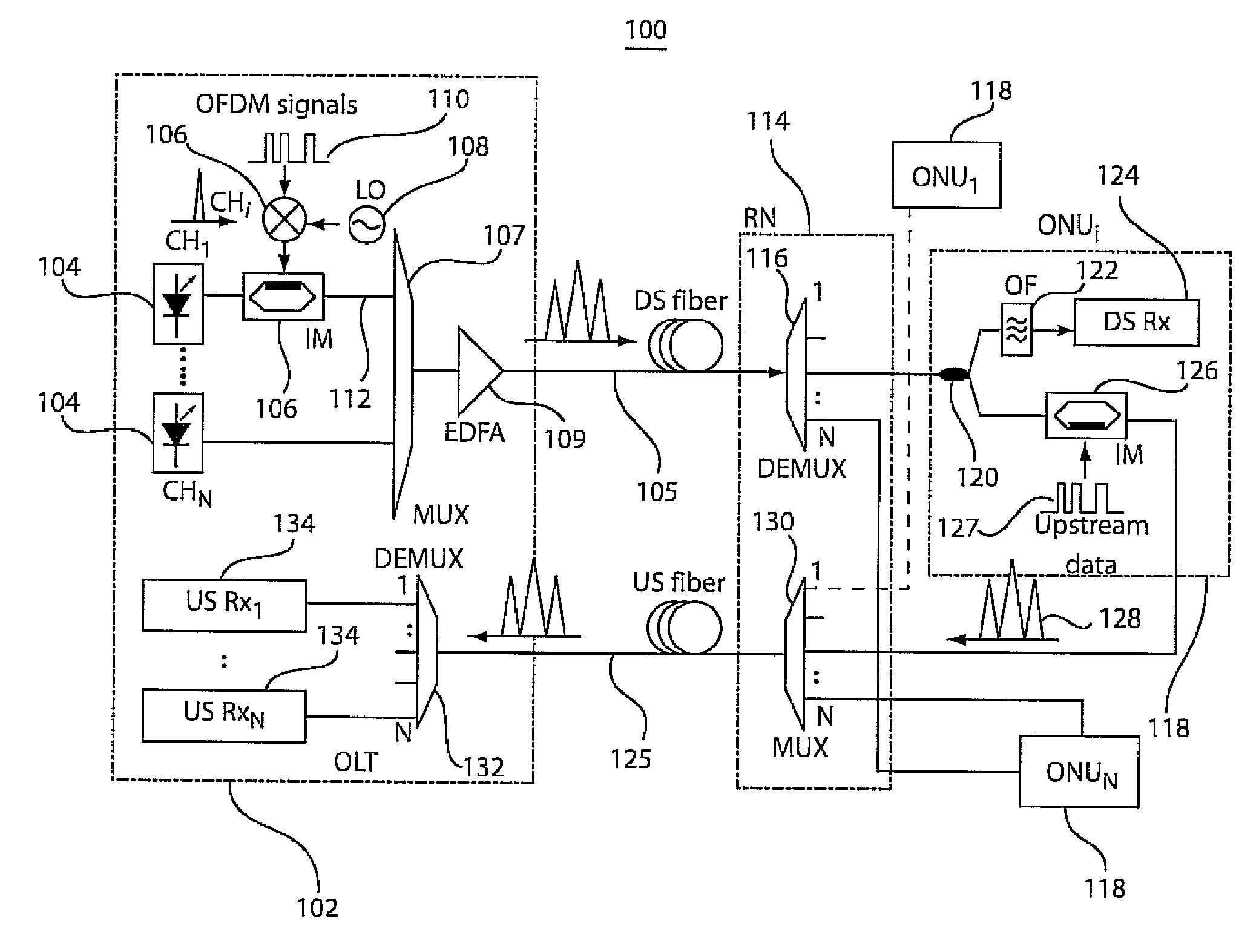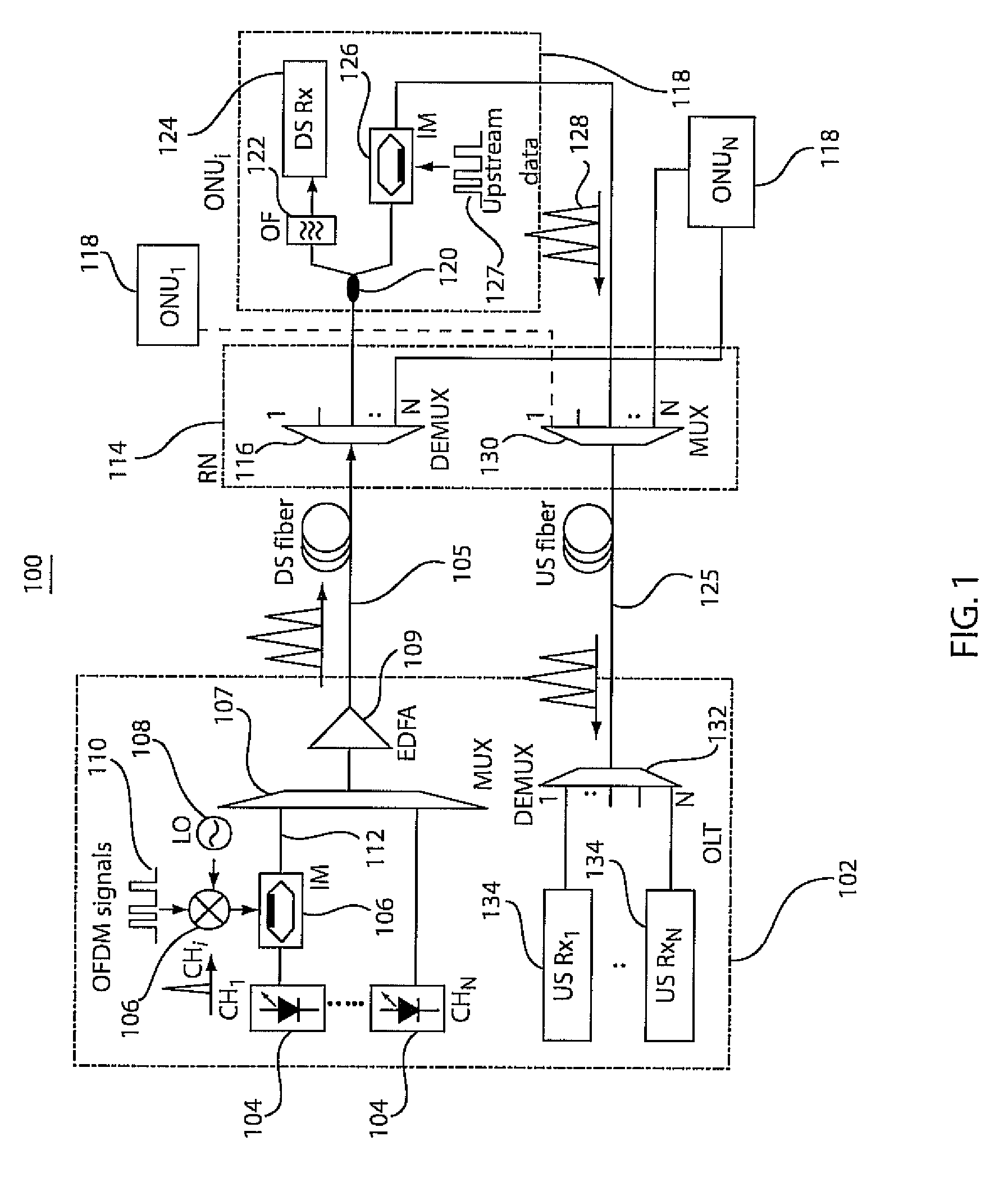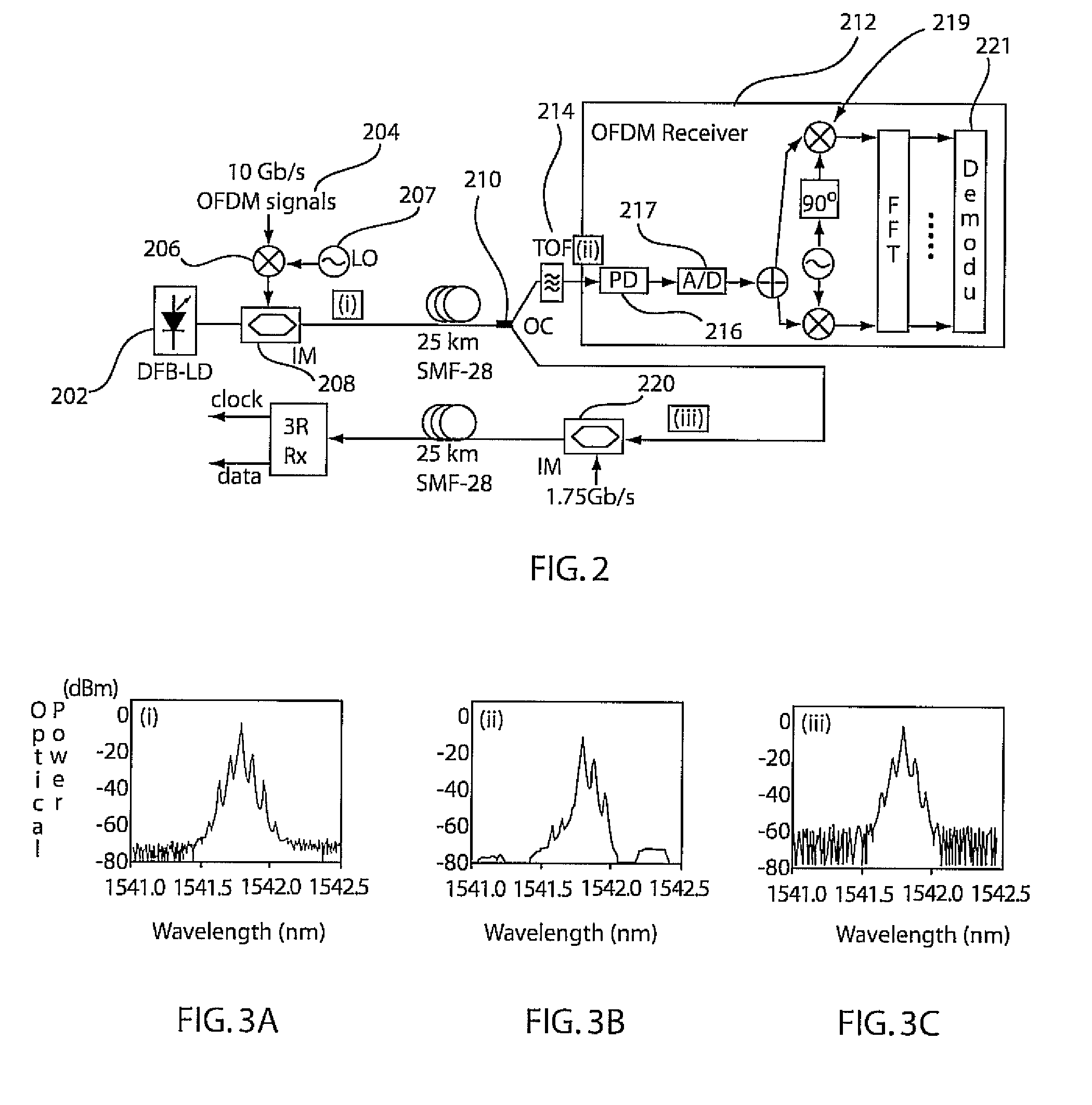Centralized lightwave WDM-PON employing intensity modulated downstream and upstream
a technology of intensity modulation and lightwave, applied in the field of optical fiber communication, can solve the problems of inflexible wavelength assignment, tdm-pon system needs complex scheduling algorithms and framing technology, and onus still lack the flexibility to dynamically allocate bandwidth among optical network units, so as to reduce phase noise of lo, simplify system complexity, and low line width
- Summary
- Abstract
- Description
- Claims
- Application Information
AI Technical Summary
Benefits of technology
Problems solved by technology
Method used
Image
Examples
Embodiment Construction
[0019]The present embodiments include a lightwave centralized wavelength-division multiplexing—orthogonal frequency division multiplexing—passive optical network (WDM-OFDM-PON) architecture. In one illustrative embodiment, this architecture may employ 16-QAM intensity-modulated orthogonal frequency division multiplexing (OFDM) signals at 10 Gb / s for downstream transmission. Other speeds and modulations are also contemplated. A wavelength-reuse scheme is advantageously employed to carry upstream data to reduce cost at an optical network unit (ONU). By using one intensity modulator (IM), the downstream signal is re-modulated. In one example, upstream on-off keying (OOK) data is re-modulated at, e.g., 1.75 Gb / s, based on its likely return to zero (RZ) shape waveform. Other speeds and modulations are also contemplated.
[0020]Fading effects caused by double sideband (DSB) downstream signals, which led to a 2.5-dB penalty, were reduced to nearly zero. The fading effects were removed when t...
PUM
 Login to View More
Login to View More Abstract
Description
Claims
Application Information
 Login to View More
Login to View More - R&D
- Intellectual Property
- Life Sciences
- Materials
- Tech Scout
- Unparalleled Data Quality
- Higher Quality Content
- 60% Fewer Hallucinations
Browse by: Latest US Patents, China's latest patents, Technical Efficacy Thesaurus, Application Domain, Technology Topic, Popular Technical Reports.
© 2025 PatSnap. All rights reserved.Legal|Privacy policy|Modern Slavery Act Transparency Statement|Sitemap|About US| Contact US: help@patsnap.com



